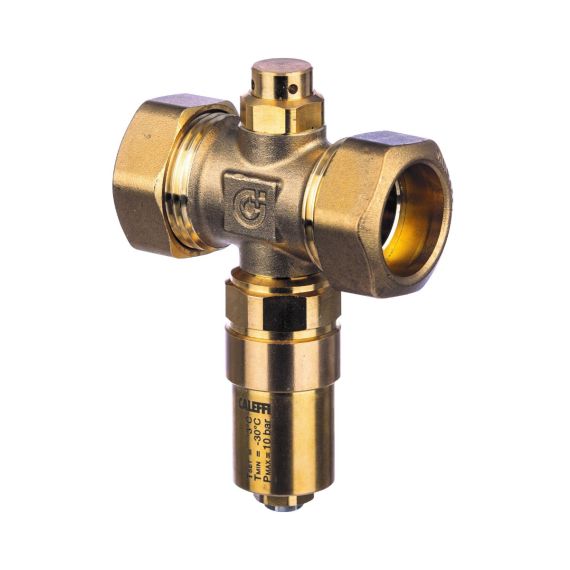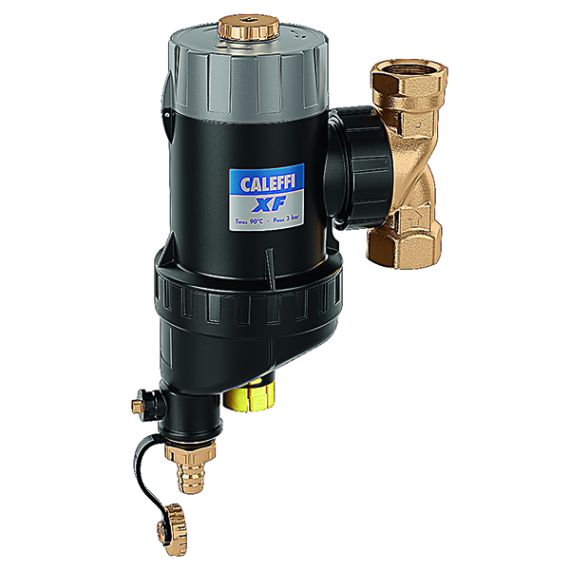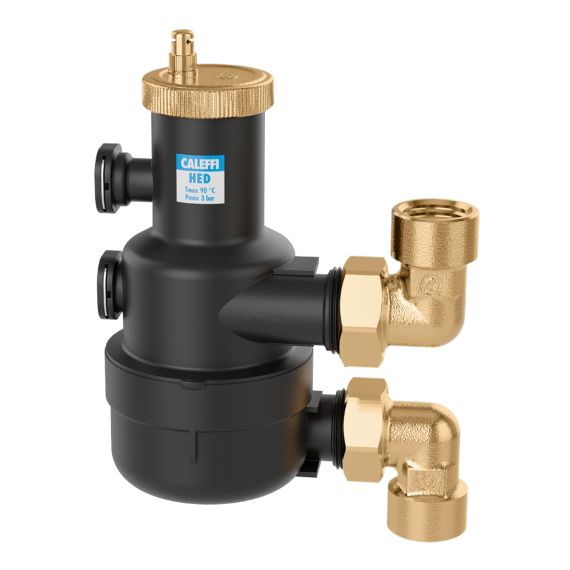Q&A with Ed Morris:
Solutions for Ensuring Heat Pump Efficiency and Longevity
Q&A with Ed Morris: Solutions for Ensuring Heat Pump Efficiency and Longevity
Heat pumps are an increasingly popular choice for sustainable heating and cooling, but their efficiency and longevity depend on proper maintenance and the integration of key system components. In this Q&A session, we sit down with Ed Morris, Technical Manager at Altecnic, to explore practical strategies for optimising heat pump performance and minimising maintenance challenges. From managing dirt and air in the system to protecting against freezing conditions, Ed shares insights on the tools and techniques that can help ensure these systems run smoothly and effectively for years to come
Q: What are the key factors that impact the efficiency and lifespan of heat pump systems?
Ed: Efficiency and longevity are influenced by several factors, including the cleanliness of the system, protection from freezing, and proper air and dirt separation. When dirt, debris, and air accumulate in heating and cooling systems, they reduce heat transfer efficiency, increase energy consumption, and cause premature wear. Protecting the system from freezing temperatures and ensuring seamless air removal are equally critical, particularly for heat pump installations in colder climates.
Q: Why is it important to include a dirt and air separator in heat pump systems?
Ed: Dirt and air separators are crucial for maintaining system performance. Dirt can insulate heat exchangers and pipework, which reduces heat transfer efficiency and forces the system to work harder. Air, on the other hand, can cause noise, corrosion, and uneven heat distribution. Components like the Caleffi HED® 5516 Series high efficiency deaerator are specifically designed to effectively expel air bubbles and remove dirt, helping to ensure that the heat pump operates at peak performance while minimizing the risk of damage and maintenance needs.
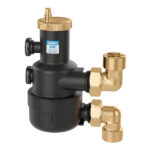
5516 HED® High Efficiency Deaerator
Q: What considerations should be made when integrating air and dirt separation technology into heat pump systems?
Ed: When adding air and dirt separators to heat pump systems, it’s important to account for the unique flow characteristics of these systems. Heat pumps often operate at different flow rates compared to traditional boilers, so separators need to be designed or configured accordingly. Flexible installation options—whether horizontal, vertical, or angled—also make it easier to integrate these components into existing setups. Choosing a design that minimises maintenance disruption is another important factor, as it helps ensure the system remains operational during servicing. At Altecnic, our Caleffi XF heat pump filter is designed with heat pumps in mind, with an adjustable by-pass in larger sizes to allow for precise control of flow rate and servicing of the filter possible without shutting down the system.
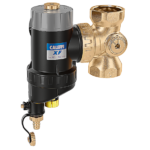
Caleffi XF Heat Pump Filter
Q: What role do anti-freeze valves play in protecting heat pump systems, especially in colder climates?
Ed: Anti-freeze valves are indispensable for systems exposed to freezing conditions. Installed on the external pipework of the heat pump, these valves automatically open at temperatures below 3°C to allow safe discharge of system content, preventing freezing. Once the temperature rises above 4°C, the valve shuts, stopping unnecessary draining. This protects both the heat pump and the pipework from freezing damage, ensuring consistent operation even during extreme weather.
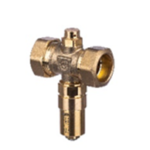
iStop® Anti-Freeze Valve
Q: How does regular maintenance impact the overall lifespan of a heat pump system?
Ed: Regular maintenance is crucial for extending the lifespan of any heating or cooling system. Removing dirt and air buildup, ensuring protection against freezing, and checking the performance of key components all help to prevent small issues from escalating into major problems. Proactive care not only minimises downtime but also helps the system maintain consistent efficiency, reducing energy costs and prolonging its operational life. Systems that are properly maintained tend to be more reliable and cost-effective over time.
Q: What advice would you give to those looking to maximize the performance of their heat pump systems?
Ed: First, prioritise system cleanliness by using effective dirt and air separation solutions. Second, protect your system from freezing if it operates in a cold climate. Finally, ensure regular inspections and servicing to address issues early. Heat pump systems are a significant investment, and taking these steps will help you get the most out of them in terms of performance, efficiency, and longevity.
For more information on our range of heat pump solutions, please click here: Altecnic Heat Pump Solutions

